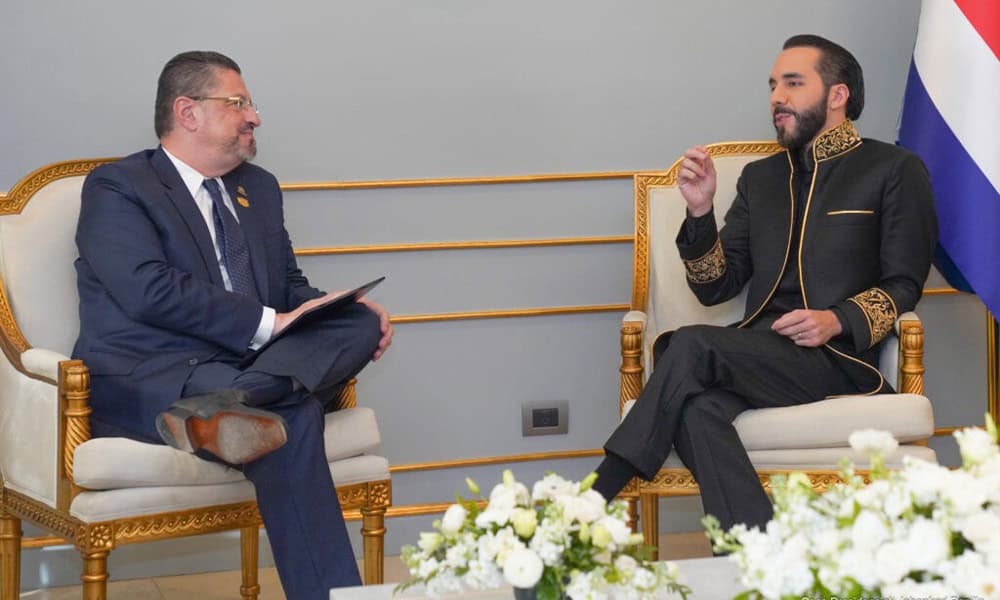The visit of El Salvador’s President Nayib Bukele to Costa Rica on November 11 has sparked controversy, highlighting tensions between regional security concerns and democratic traditions. Bukele, known for his tough stance on crime and accused of authoritarian tendencies, will meet solely with Costa Rican President Rodrigo Chaves. Initially, plans included meetings with legislative and judicial representatives, but these were scrapped following discussions between the two leaders.
This change has raised eyebrows in Costa Rica, a country proud of its long-standing democratic institutions. Rodrigo Arias, President of the Legislative Assembly, expressed willingness to follow protocol despite disagreeing with some of Bukele’s policies. However, some deputies and members of the judiciary are opting to avoid meeting the Salvadoran president altogether.Chaves defended the visit, praising Bukele’s security policies that transformed El Salvador “from a high-violence country to one of the safest societies in the world.”
He acknowledged the debate over whether “the end justifies the means” but emphasized Bukele’s democratic mandate, noting his overwhelming electoral victory.”Bukele secured 90% of the vote and a strong legislative majority, capturing 56 of 60 seats. The question is whether the focus should be on democracy itself or if it’s the rules or the outcome,” Chaves remarked.This stance has sparked debate among Costa Ricans, expats, and tourists alike.
Many are concerned about the potential impact on Costa Rica’s international reputation as a bastion of democracy and human rights in Central America.For expats and tourists, the visit raises questions about Costa Rica’s future approach to security and governance. While some applaud the possibility of enhanced security measures, others worry about potential shifts away from the country’s traditionally open and democratic society.
Congressman Óscar Izquierdo of the PLN voiced concerns shared by many: “Costa Rica is a democracy-loving nation; I don’t see a welcoming environment to receive him.”The controversy surrounding Bukele’s visit stems from accusations of human rights abuses and erosion of the separation of powers in El Salvador. His government’s mass incarceration policies have effectively reduced gang violence but at a cost that many human rights organizations deem too high.
For Costa Rica, a country that abolished its army in 1948 and has since prioritized education and environmental protection over military spending, Bukele’s approach presents a stark contrast to its national values. The visit also occurs against a backdrop of regional challenges, including migration issues and economic pressures, which are of particular interest to both the expat community and the tourism sector.
As Costa Rica navigates this diplomatic tightrope, the government’s handling of Bukele’s visit may signal its future approach to balancing regional cooperation, security concerns, and its cherished democratic principles. For a country that prides itself on being an oasis of stability in Central America, the coming days will be closely watched by citizens and international observers alike.






